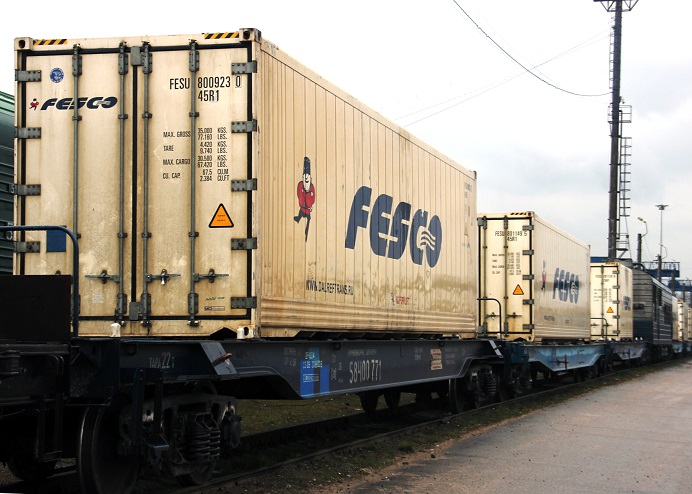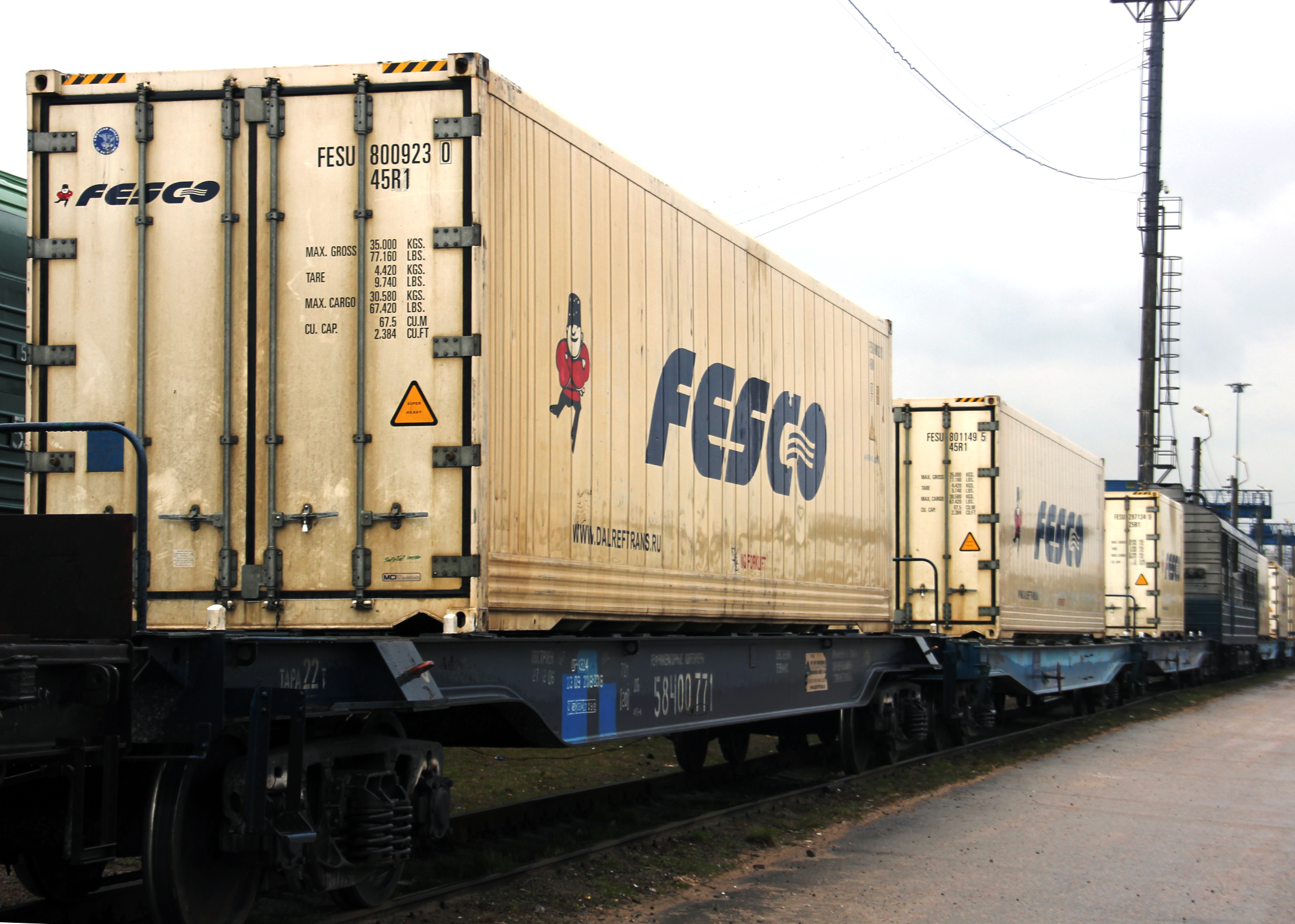MB-FESCO Trans (part of the FESCO Transportation Group) and Russian Railways’ Central Directorate for Management of the Terminal & Warehouse Complex have launched a joint project to handle temperature-sensitive freight at the Moscow Railway’s Kuntsevo-2 station, which is the only terminal within the Moscow Ring Road that has technological capabilities for connecting refrigerated containers.
 In April, Russian Railways completed the upgrade of the terminal, having set up the infrastructure to handle refrigerated containers. MB-FESCO Trans has developed a freight consolidation technology for regional road and railway transportation within FESCO’s intermodal chain, as well as a technology to process large batches for further delivery of smaller batches directly to its clients in Moscow and the Moscow Region. On 22 April, the first refrigerated shipment of food products was dispatched from Kuntsevo-2 to Vladivostok.
In April, Russian Railways completed the upgrade of the terminal, having set up the infrastructure to handle refrigerated containers. MB-FESCO Trans has developed a freight consolidation technology for regional road and railway transportation within FESCO’s intermodal chain, as well as a technology to process large batches for further delivery of smaller batches directly to its clients in Moscow and the Moscow Region. On 22 April, the first refrigerated shipment of food products was dispatched from Kuntsevo-2 to Vladivostok.The terminal commissioned in the west of Moscow is part of the project to develop cross-docking of temperature-sensitive freight. Cross-docking is a practice of unloading cargo from incoming transport and promptly loading it into outbound containers with little or no storage in between. FESCO works to increase the volumes of temperature-sensitive freight transportation in refrigerated containers using the Group’s assets within its intermodal chain. MB-FESCO Trans is planning to open two more cross-docking platforms for temperature-sensitive cargoes near the Moscow Ring Road, in the south and east of the Moscow Region.
Cross-docking and intermodal refrigerated container transportation services are geared towards perishable goods producers and distributors, as well as retail networks and trading companies which are in the market for transporting large volumes of freight with a fixed delivery time. Refrigerated container transportation of perishable cargoes makes it possible to reduce logistics costs thanks to lower expenses associated with product inventory and storage, and no more need for repacking. Moreover, the containers’ capacity allows for increasing the weight of a standard cargo batch to 23.5–24 tonnes (capped at 20 tonnes for refrigerated trailers). Refrigerated container transportation through FESCO’s existing railway services via the Group’s intermodal chain takes 4–5 days from Moscow to the Urals, 7–8 days to Siberia, and 12–14 days to the Far East of Russia.
